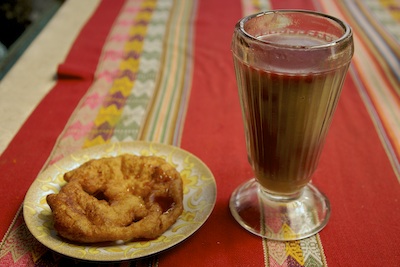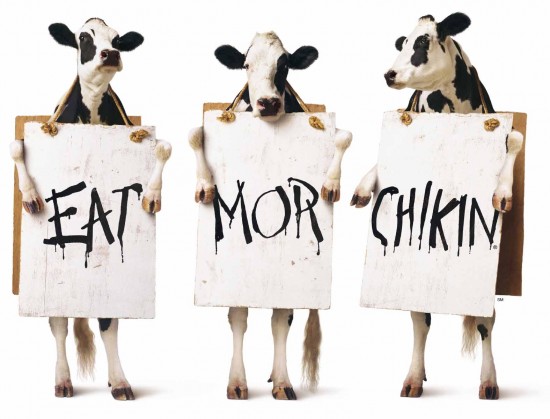
POTATO AND CHICKEN...


Bolivia, along
with Paraguay, is one of the two only countries in the Americas without a
coast. Out of its population of 10 million,
2.5M live in the government capital of La Paz.
Even though spanish is the first official language of the country, it is
a second language for many Bolivians.
Being the country with the highest percentage of indigenous population,
% of Bolivians are Quechua, 20%
Aymara, and 4% are of the Guarani Amazon. Spanish is widely used in the streets of big
cities such as La Paz or El Alto, but the farther away you travel, the more
frequently you will find it replaced by
either Quechua in the altiplano or Aymara in any other region.
I crossed the Brazilian border by the small village San Matias, already a month and a week ago. From there I crossed the Oriente
region, the eastern part of the country, the richest currently at a time with the fast development of the agriculture
and commerce of petrol. At the heart of the Oriente is Santa Cruz, the
economic capital of Bolivia, and also my first Bolivian step. After being here for only two days, I realized that I had not made bad choices by orienting my way to the east. The meetings with fellow travellers
have followed, walking my little bit of adventure, having no real grip on the events that happened, and who would happen anyway. It´s in Santa Cruz I heard on the
lips of many people the village of Samaipata. Here I am after 7 days strolling in the markets of Santa
Cruz, waiting on a 78 sec traffic light, brandishing my beautiful sign "Samaipata".
This village is so quiet, laid on a hill, there you glean 1 week or 2 , from sunrise to sunset, doing your shopping at small well-supplied market and burning bonfire at night to the rhythm of pan flutes. It´s also there that I had memorable meetings as : Georg to
the across a road, my dude German Compagnon from Capo Verde, with whom I went through, simultaneously but in two different boats, the Atlantic Ocean. Francois which I met in Santa Cruz, and
again here,
French vagabond who spreads
his life for making other´s better. All this French crew : Candy, Fred, PH, Flo, Baptiste,
Naya, we were
a small community
living at the mercy of the sun for a short period of time. This Catalan couple
who dream
of sailing back to Europe, this 2 insane French girls. Barbara, the Hungarian that measures less than a meter 50, but which you can see for kilometers with her bright orange jacket.
It is also there that I met Mikha, South African
far from home, with whom I would travel two weeks in later. At Samaipata I would spend one of the best evenings since I left, the new year eve of Incas "Inti Rayni". Samaipata was defenetely a special place.
It was like holidays, has the Love Boat, without sea, but better ...

After this episode, I took the road for Cochabamba, in the
Valleys that enclave between the East and the Altiplano. This trip would
deserve an article on its own!
2 days to make the 250km that separates me from the
city. But Que Dias! I finally found a ride in the middle of the afternoon of
the second day, in a truck filled with vegetables, straight towards "La
Cancha", the largest market in Bolivia, in Cochabamba. It´s on the hundreds of potatoas
bags, open roof,
that I would travel during nine hours for the 200km that still separates me
from the city. Me, potatoes and Quechuas. 10 in all, we are a small battalion
ready for the fight ahead. The road, or as they call it "The Older"
is like his pseudonym suggests, not very young. For 9 hours, not a single
kilometer flat. It goes up and down, zig-zig, before rising back down, and
again and again. Arriving at sunset, the regiment accompanying me begins to become
agitated; it is the time which I renamed "The Package". Each pulls
out, not one, not two, not even three, but seven or eight huge blankets, with which
they begin to curl, leaving just a trickle of air to breathe before fall down again on potatoes,
such as huge spring rolls for giants. Night comes and goes and I blessed my
sleeping bag to do the same job as the 8 blankets.
Rocked by the roller coaster of the truck and the negative
temperature that comes quickly, I fall asleep surrounded by the splendor of the
Milky Way.
Around 2AM, it is again the ruckus among the troops. Each
one folds his spring rolls. The view has changed, the empty shelves tell me
that the final destination is approaching, the market of La Cancha. As this
trip was like a king travelling in coach, I started unloading the truck on the
sideway, hundreds of 50kg potatoes bags that allowed me to make my way. I must
thank the King of potatoes for this beautiful opportunity.
I spend 2 nights in Cochabamba before reaching La Paz in a
hitchhiking day.
La Paz,

the metropolis perched between 3200 and 4000m in the Altiplano. Do not look
down, the Altiplano has nothing below 3000m. Bolivia and its 1,000,000 km, 2
times the size of France, and I'm almost on the other side of the country, I
can almost see the ocean, winking at me. I crossed the continent in width before
reaching its southern part. The first days in La Paz are always challenging for
all. Up or down, no other choices. Add to that the lack of oxygen and you find yourself out of breath after twenty steps (though stairs well built for
once).
In La Paz "You will eat everything." Indeed,
Bolivia is not famous for its cuisine, but as I´m quiet interested in, I found a bunch
of good stuff.
First of all, Api, a red corn-based drink served hot, which
has nothing to envy to hot wine during the freezing evenings. Accompanied by Bunuelos (donut with sirop) they made my happiness for many mornings. Like dining a Chairo soups (Aymara soup with beef, onion, carrot and Chuno) or Caldo de Mani (peanut soup).

And then there is of course the potatoes! I don´t think I will see such a displays of potato soon as I´ve seen in the markets of La Paz.
The Chunos are a staple food for Bolivians, small potato dried in the sun, which can be preserved for centuries (or
weeks!) Parmentier did not invent anything, the attribution of the 4000 different variety of potato that South America has is attributed to the
Incas.

Meat section, I don´t know from where they come, because I haven´t seen them in the country , but here they eat Chicken (with a big C). Pollo here and Pollo there, Fricassé on every corner, a piece of fried chicken on each mouth´s corner, soup, fritters, salad,
barbecue, plancha or pan, with any fucking sauces and any fucking time, people eat fucking CHI-CK-EN!

There is also the Trucha, the fish of the Lake Titicaca, but it has nothing special to dethrone fucking Ch-ick-en, even in Copacabana.
Empanadas are also very common. Cheesy mainly, but very often with a little of C…. ... .. Yeah, yeah, you guessed it.

And I don´t really call it food, but it filled the mouths of so many people. 80% of the people
living in the Altiplano consume it. The Coca leaf! National Heritage introduced by President Evo Morales currently at his 3rd term. It was a very important political
issue during the 80/90. An American study from 1950 claims that coca leads to
mental retardation and the cause for poverty in South America. The United
Nations decides to eradicate coca.

After La Paz, direction to Lake Titicaca, in Copacabana,
with Mikha. There we cross the Isla Del Sol with two Ozzies. Lake is the grandest in size and beauty at its altitude(4000m), divided between
Peru and
Bolivia, you can´t see the end of it.

From there, I went back solo for Sorata, where I am now. "Pearl of the
Andes", it is
primarily a
very important starting point for treks in the Cordillera Real. Located at the northern tip of it, it is now possible to cross in twenty days trek in total autonomy. I
think just
go around the Illampu, which is the mountain overlooking Sorata, a trek of 7 days autonomy, 4 passes above 4000m
and one above 5000. Ranked among the 20 most beautiful trek in the world. Before
that, I intend
to do a leg-up
three days
by going for the Laguna Chillata than Laguna Glaciar (5000m).
Guys, I hope you enjoy to get some news, because the fucking internet here is worst than everywhere I´ve been.

I leave you with some good music from Bolivia :
Los Kjarkas - Munasqechay
Enjoy!
Edit by Iris, thanks to her!